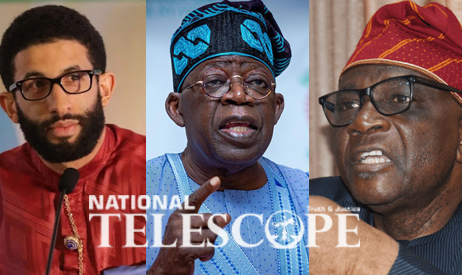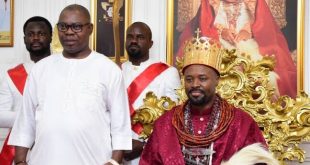Ajuri Ngelale, the former Special Adviser to President Bola Tinubu on Media and Publicity, did not step down due to a family medical crisis as he claimed.
Instead, multiple sources reveal that he was dismissed due to internal conflicts with Bayo Onanuga, the Special Adviser on Information and Strategy.
Ngelale’s abrupt departure on Saturday morning was initially explained as a need to address “medical matters affecting my immediate family.”
He described his resignation as a necessary step due to a worsening family health situation. However, insiders suggest that this was a cover for his sacking.
A Cover-Up for Dismissal
In his resignation announcement, Ngelale wrote, “I submitted a memo to the Chief of Staff to the President stating my need for an indefinite leave to deal with medical issues affecting my family.”
He added that he looked forward to returning to his duties once the situation improved.
However, sources close to the presidency indicate that the real reason behind Ngelale’s departure was a protracted power struggle with Onanuga.
Ngelale, who had previously served as senior special adviser under former President Muhammadu Buhari, reportedly saw himself as more senior compared to Onanuga, leading to friction.
Tension Between Ngelale and Onanuga
Since Tinubu’s election, the relationship between Ngelale and Onanuga has been strained.
Ngelale, a broadcast journalist with a background in AIT, had been in government roles since 2019, while Onanuga, an experienced journalist from NAN, joined the administration in late 2023.
The overlapping roles and unclear boundaries between their responsibilities led to confusion and conflict.
Sources reveal that Ngelale, who had strong backing from President Tinubu’s son, Seyi, and Chief of Staff Femi Gbajabiamila, managed to secure his position and block Onanuga from getting a designated office for months.
This situation created a tense work environment in the presidency.
Political Intrigue and Public Perception
Ngelale’s sacking is reportedly linked to his strained relations not only with Onanuga but also with the media.
Sources suggest that Ngelale’s abrasive style and poor rapport with journalists further contributed to his downfall.
His inability to collaborate effectively with the press and his perceived arrogance led to diminished support from key figures within the administration.
Efforts to reach Ngelale and Onanuga for comment were unsuccessful, as both declined to respond to inquiries.
This development highlights the complex dynamics within the presidency and the influence of internal politics on key appointments.
 National Telescope national telescope newspaper
National Telescope national telescope newspaper



